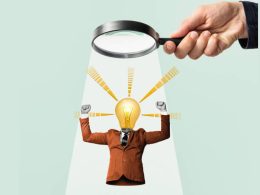His actions have far-reaching implications, prompting critical discussions about the ethical, economic, and democratic facets
Elon Musk’s influence in both the business and political arenas has reached unprecedented levels, intertwining his corporate ventures with significant governmental roles. This convergence has sparked extensive discussions about the implications for democracy, governance, and the global economy.
Political Ascendancy and Governmental Roles
In the aftermath of the 2024 U.S. presidential election, Musk emerged as a pivotal figure within President Donald Trump’s administration. His substantial financial contributions, exceeding $250 million to a pro-Trump political action committee, underscored his commitment to the administration’s success.
This financial support translated into political capital, culminating in Musk’s appointment as co-chair of the newly established Department of Government Efficiency (DOGE). This department, conceived to streamline federal operations and reduce governmental expenditures, has granted Musk considerable authority over federal agencies.
His approach has been marked by aggressive restructuring efforts, including the dissolution of entities such as the United States Agency for International Development (USAID) without prior Congressional approval. These actions have ignited debates regarding the balance of power and the potential erosion of established democratic processes.
Impact on Federal Policies and Agencies
Musk’s dual role as a government official and a business magnate has led to significant shifts in federal policies, particularly those intersecting with his business interests. The Department of Government Efficiency has initiated extensive budget cuts, targeting agencies like the Consumer Financial Protection Bureau (CFPB) and the National Institutes of Health (NIH).
Critics argue that these measures, while framed as cost-saving initiatives, may disproportionately benefit Musk’s enterprises by reducing regulatory oversight. Concerns have been raised about potential conflicts of interest, especially as several key regulators overseeing Musk’s companies have been dismissed or have resigned, leading to suspicions regarding the impartiality of governmental oversight.
Business Ventures and Market Dynamics
Musk’s corporate empire, encompassing Tesla, SpaceX, and X (formerly Twitter), has experienced notable fluctuations in market performance, influenced by both political developments and internal challenges. Following President Trump’s re-election, Tesla’s stock surged by nearly 15%, adding approximately $20 billion to Musk’s net worth and solidifying his position as the world’s richest individual.
This surge was attributed to investor optimism regarding favorable policies under the new administration. However, Tesla has also faced headwinds, including a decline in sales and profits for the first time in a decade during 2024. This downturn has been partly attributed to Musk’s political activism, which has alienated segments of Tesla’s traditionally progressive customer base.
In the social media sphere, Musk’s acquisition and rebranding of Twitter into X aimed to transform the platform into a comprehensive financial services hub. Despite ambitious plans, including partnerships with major financial institutions like Visa, the platform has struggled with declining user engagement and advertiser pullback, challenges exacerbated by Musk’s controversial public statements and political endorsements. These dynamics have raised questions about the sustainability of Musk’s vision for X and its impact on the broader digital landscape.
International Relations and Geopolitical Influence
Musk’s influence extends beyond domestic affairs, impacting international relations and geopolitical dynamics. In Vietnam, the government has introduced regulations permitting Musk’s Starlink to provide satellite internet services, a move interpreted as an olive branch amidst U.S. tariff threats. This development underscores Musk’s capacity to navigate complex international landscapes, leveraging his business ventures to influence diplomatic relations.
Conversely, in Germany, Musk’s public endorsement of the far-right Alternative für Deutschland (AfD) party has sparked significant controversy. His statements urging Germans to move beyond historical guilt associated with World War II have been met with widespread condemnation from political leaders and the public.
This intervention has not only strained Tesla’s market position in Germany, with a reported 60% decline in sales, but has also raised broader concerns about the role of corporate leaders in political discourse and the potential repercussions of such engagements on international business operations.
Ethical Considerations and Public Perception
The fusion of Musk’s political and business endeavors has ignited debates over ethical boundaries and the potential for conflicts of interest. His involvement in governmental restructuring, coupled with his expansive corporate interests, has led to scrutiny regarding the impartiality of policy decisions and the potential for personal gain.
Public perception is increasingly polarized; while some view Musk as a visionary leveraging his resources for societal benefit, others perceive his actions as overreach, potentially undermining democratic institutions and processes.
This dichotomy is evident in the protests organized by groups such as Indivisible and MoveOn, which have targeted Musk’s initiatives, highlighting concerns over the potential erosion of social welfare programs and the concentration of power in the hands of unelected individuals.
Elon Musk’s unprecedented convergence of business acumen and political authority in 2025 has redefined the interplay between corporate influence and governance. His actions have far-reaching implications, prompting critical discussions about the ethical, economic, and democratic facets of such power dynamics. As Musk continues to navigate and shape this complex landscape, the global community remains attentive to the outcomes of his multifaceted influence.







